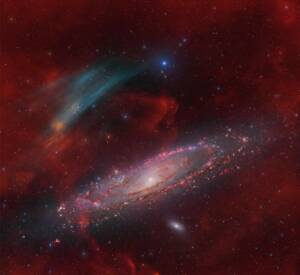
Discovery of the M31 [OIII] emission arc
Recently, a major discovery by an international team of amateur astronomers and scientists has become a huge online hit, and this new discovery is just located in one of the
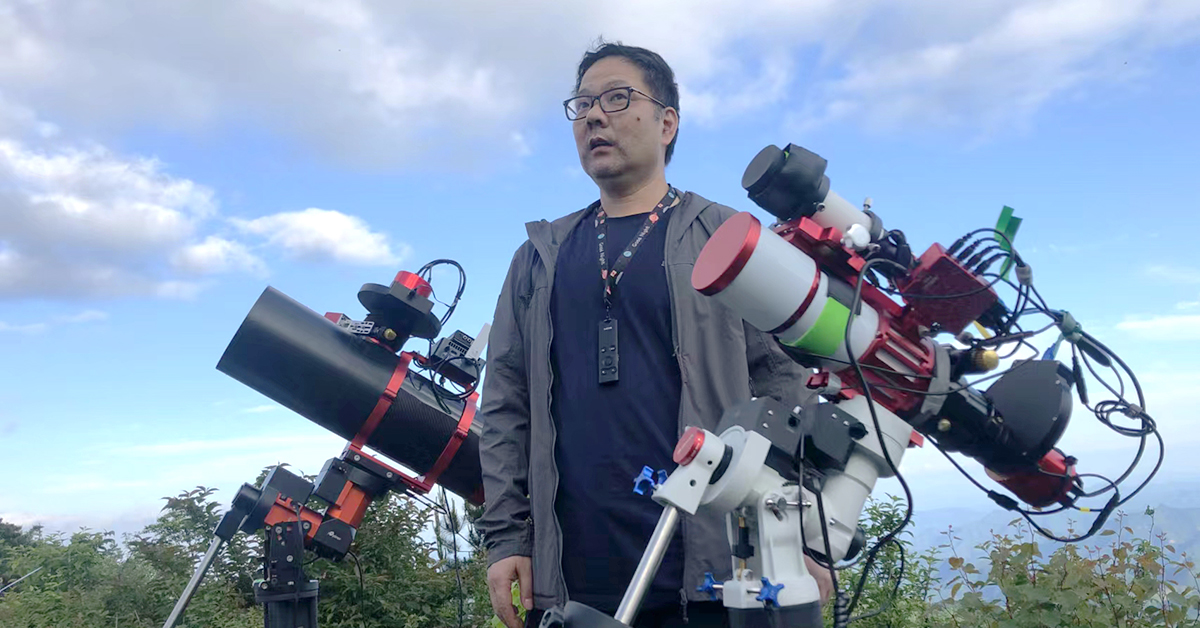
Hi! Thank you and it’s an honor to be selected for ASIWEEK. My name is Liqun Zhu. I live in Shanghai, China. I’m 53 years old and I love Astrophotography.
I started to take digital photos about 20 years ago as a hobby. I took family and travel photos mostly until 2019 spring. I took a Milky Way photo during travel by chance and I’m amazed at how beautiful the starry night is. Shortly after, I decided to do deep sky photography and took my first Orion Nebula at the end of 2019.
I love astrophotography because it’s a combination of science and art. Every time I process an Astro photo, I’m always thrilled by the fact that these lights are from millions of light years away and wondered how big the universe is and how short human life is. Although I know little behind the Astro photos, I want to show people the beauty of the universe.
I learn astrophotography from the internet. I read and watch tutorials and then practise. It’s a long way to go and I’m still learning now. Nowadays, I and my friends established a group to share astrophotography experience via online meetings and live broadcasting to help others.

I have 3 gears at the remote observatory and 2 with me. They all use ZWO ASI6200MM Pro. About the telescopes, one is RC reflector and the others are APO refractors. I also have ASIAIR PRO and ASIAIR Plus. I use them when travelling and they do make astrophotography much easier.


Thank you! I knew the rain season was coming to my remote observatory and there would be little chance to capture any photos. I love the color of Rho Ophiuchus so much, so I took 2 nights worth of 6 hours subs right after it’s photographable. I took 2 panels mosaic and process them in Pixinsight. In the end, I processed them in Photoshop.

I just do some daily astrophotography. I like to take more subs to start with and process it slowly and carefully in every step to avoid over-process.
My advice to the newcomers is as followed. First, buy a small reflector like 3 or 4 inches APO and cheap Astro camera of small format like 4/3” or APS-C format and a good mount to start with. Second, watch tutorials to learn how to take astrophotos and then practise at home. Third, join forums or groups to learn more skills and ask for help sometimes.
I like big bright nebulae such as M42, M45, M31 at first and I still love them now. Then I try narrow band emission nebulae such as Eagle Nebula, Heart and Soul Nebula, and I love the colorful Hubble Palette tones. Lately, I have turned to challenging objects like dark nebulae, planetary nebulae and small galaxies. I think they are all very beautiful and I want to capture as many as possible.


I like ASI cameras very much. They are easy to use, and I can take very clean and sharp subs with them. I wish ZWO can provide an affordable COMS camera with a large format like IMX461.
Astrophotography software works differently compared to common photography software like Photoshop. I think the best way to learn it quickly is that you should try to know the basic concept and workflow by reading books or watching videos, then practise with an easy target like a bright nebula.
The nearest dark place from my home is Dongtan, 50 miles away and barely Bortle 4, very humid and often with strong wind. Although it’s not ideal for astrophotography but it’s a beautiful bird reserve place. I have travelled there many times with friends and had lots of fun. Three years ago, only a couple of people went there for astrophotography and now there are dozens including high school students whenever there is a clear night at weekends. The biggest event was 2021 Perseid Meteor Show, families and couples were all over the place, and I heard “WOW” all night. I’m glad to see astrophotography community growing so rapidly. We call the place “The Astro Street”.
I have been into a new world ever since I started astrophotography. I have learned a lot of new knowledge, made many new friends and had a lot of fun when travelling and taking Astro photos together.
I would like ZWO to make more accessories like drawtubes, adapters, rotators, etc. And I prefer cables of higher quality. I personally think the lens on some cameras are not very useful, and I hope they could be improved. I will be very excited if ZWO can produce high-quality telescopes.

Recently, a major discovery by an international team of amateur astronomers and scientists has become a huge online hit, and this new discovery is just located in one of the
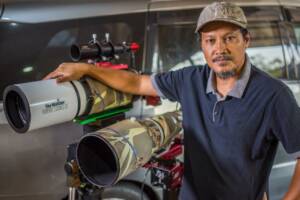
1.How It All Began I have been a fan of astronomy since high school.Starting from a school event where I can see the moon up close through a telescope.When I
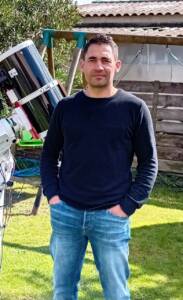
1. How It All Began For Puig Nicolas, it all started at the age of 10 with a 60/700 refractor and a 114/900 reflector. His first celestial encounters — the
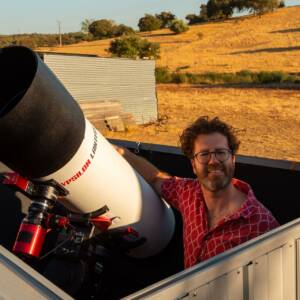
By day, David Cruz works as a digital designer. By night, he designs something far greater — images of the universe itself. “Since I was young, I was always interested
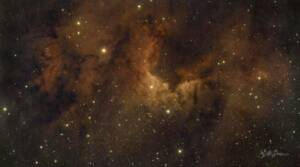
bbrown_admin, October 30, 2025 INITIAL IMPRESSIONS: The ZWO ASI585MC Air came well packaged from the manufacturer. The box is improved and has an impressive feel with a magnetic closure on
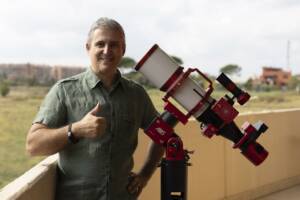
– Q3 ASIWEEK Winner Gianni Lacroce’s Astrophotography Journey Hi, I’m Gianni Lacroce, an Italian astrophotographer. My passion for the night sky began long before I owned a telescope or a